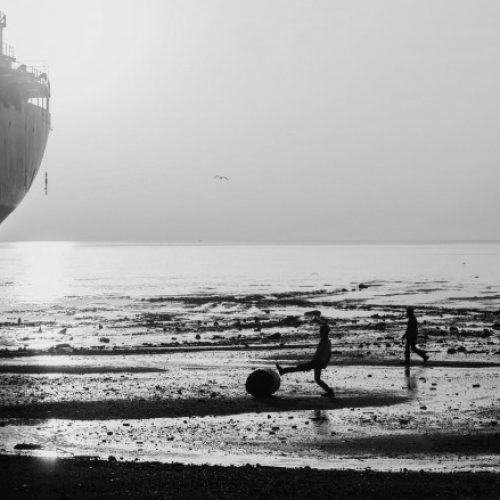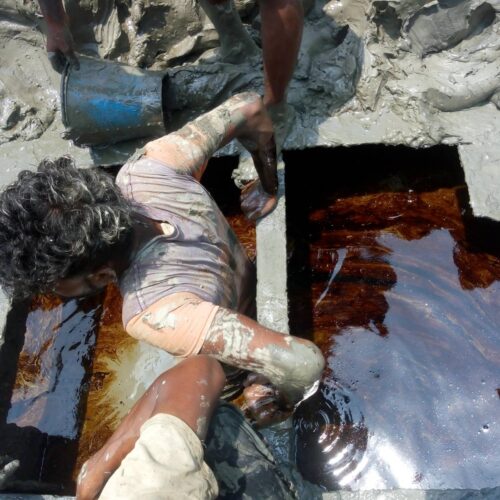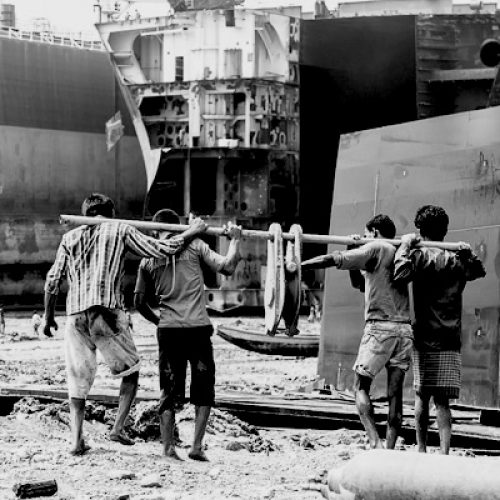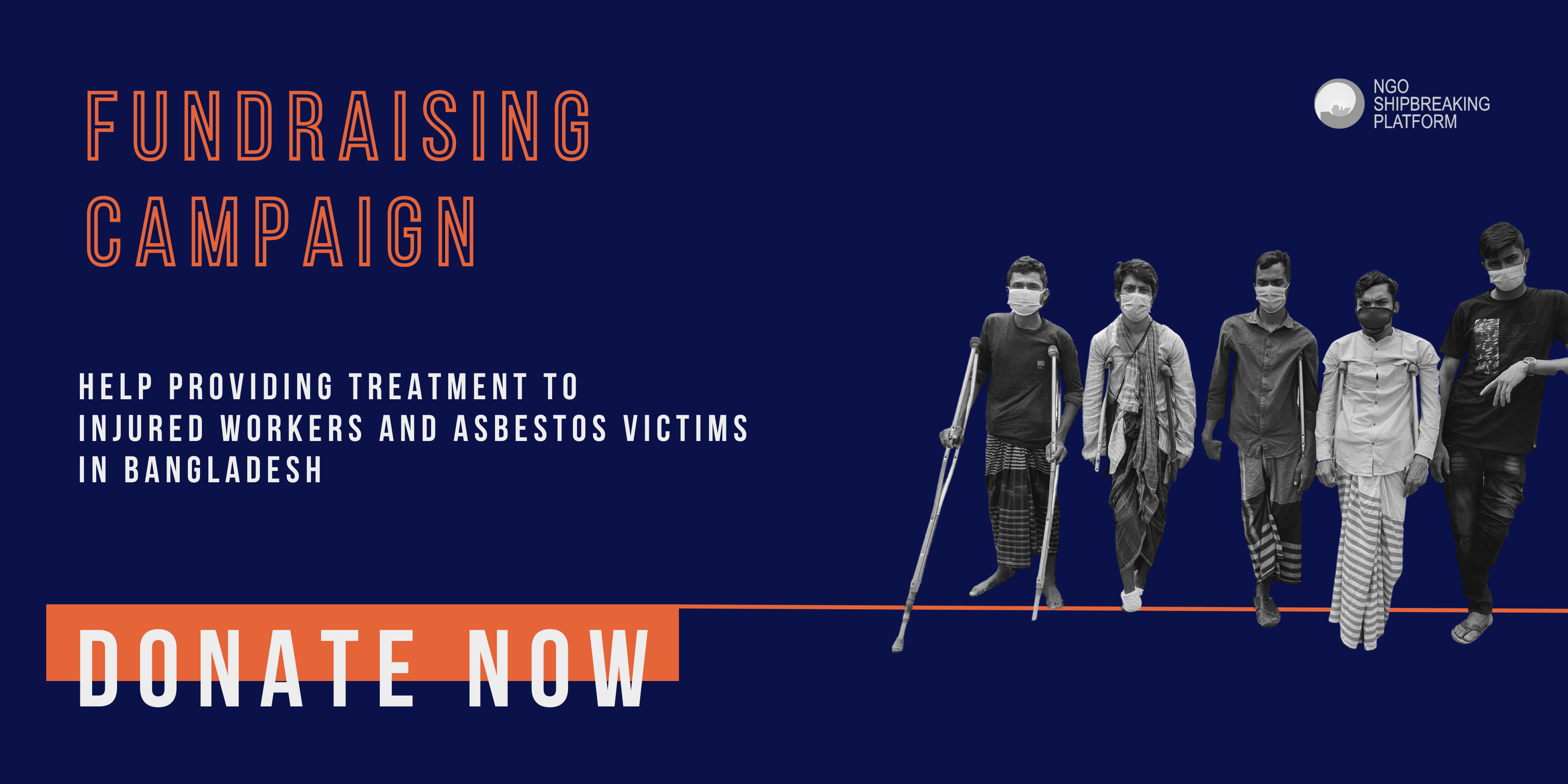Platform News – Platform launches fundraising campaign for afflicted workers
More than 70 percent of end-of-life vessels end up in South Asia, where they are broken down under rudimentary conditions on the beaches of Alang-Sosiya in India, Chattogram in Bangladesh, and Gadani in Pakistan - a practice known as ‘beaching’. The human and environmental impacts of the shipbreaking industry are devastating. The industry is even considered by the International Labour Organisation (ILO) as one of the most dangerous jobs in the world.
Shipbreaking workers, often exploited migrants, lose their lives on accidents or suffer severe injuries, such as burns, amputations and serious spinal injuries, due to unsafe working conditions. The shipbreaking workers are also vulnerable to occupational diseases due to the exposure to toxic substances embedded within the ships’ structures, including asbestos, PCBs and heavy metals. Asbestos is one of the most common and most hazardous materials found onboard ships. When extracted, it breaks into fine fibres, which can be suspended in the air for long periods of time. If inhaled, the fibres can lead to fatal diseases such as lung cancer, mesothelioma and asbestosis.
Since 2009, around 7000 ships were beached in South Asia with a recorded data of 425 deaths and 329 injuries. The figures on accidents are likely to be much higher, and occupational diseases are not even registered in these statistics and are difficult to monitor.
We are now calling for your support to help injured workers and asbestos victims in Bangladesh. Check out our fundraising campaign for more information by clicking here or on the image below.

Related news

Press Release – Maersk end-of-life vessels to hit the beaches again. NGOs denounce container ship company’s step back to boost profits
The NGO Shipbreaking Platform and Transport and Environment (T&E) denounce Maersk Group’s decision to beach their end-of-life vessels in India [1]. The world’s leading container ship owner… Read More

Press Release – Brazilian Navy suddenly seizes its old warship forcing it to sea
NGOs urgently call on President Lula to prevent Navy from sinking toxic ship in the Atlantic.
... Read More
Press Release – Toxic aircraft carrier São Paulo rejected by Turkey returning to Brazil
The toxic waste-laden aircraft carrier São Paulo is on its way back to Rio de Janeiro, Brazil. Environmental and labour groups declare victory.
... Read More
Press Release – Documentary reveals SBM’s toxic trade of ships in Alang
Dutch multinational SBM Offshore allowed a heavily polluted tanker to be demolished on the beach in 2018.
... Read More
Platform publishes South Asia Quarterly Update #35
Four workers suffered an accident on South Asian beaches in the third quarter of 2023.
... Read More
Press Release – NGOs warn that Hong Kong Convention will fail to ensure sustainable ship recycling
Treaty to continue toxic business-as-usual on the Beaches of South Asia while undermining efforts for reform.
... Read More
Platform publishes South Asia Quarterly Update #21
There were a total of 166 ships broken in the first quarter of 2020. Of these, 126 ships were sold to the beaches of South Asia for dirty and dangerous breaking.
... Read More
Platform News – Norway’s largest Pension Fund highlights human rights and environmental risks related to shipbreaking in South Asia
KLP, Norway’s largest pension fund [1], commissioned the International Law and Policy Institute (ILPI) [2] to write a report on the human rights and environmental risks related… Read More


